ITÄKESKUS DANCING TREE
a RUMARYHMÄ video by TEEMU MÄKI
2002–2004
Teemu Mäki
4:3, production format DV
Distributor: AV-arkki
Script, camerawork, audio recording and editing: Teemu Mäki
Performers: Pia Karaspuro and Päivi Rissanen
Music: Jouko Kyhälä and Outi Pulkkinen
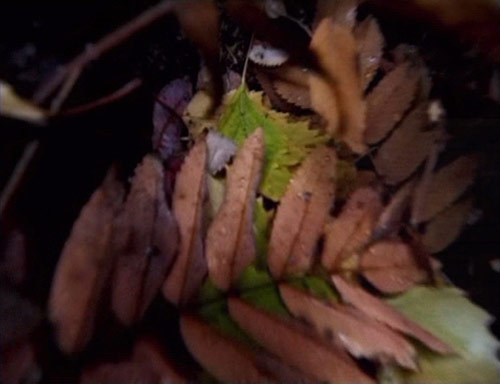 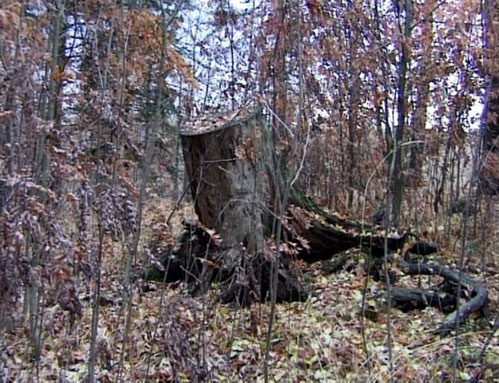 |
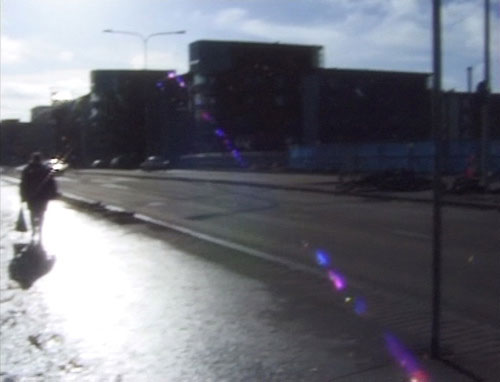 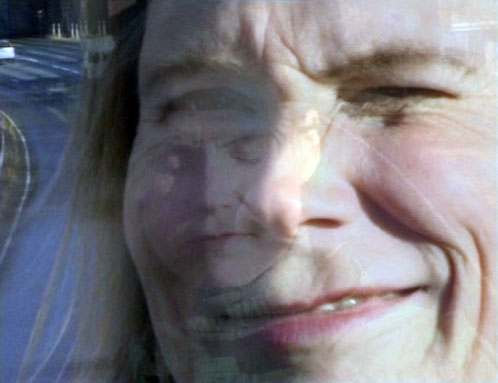  |
   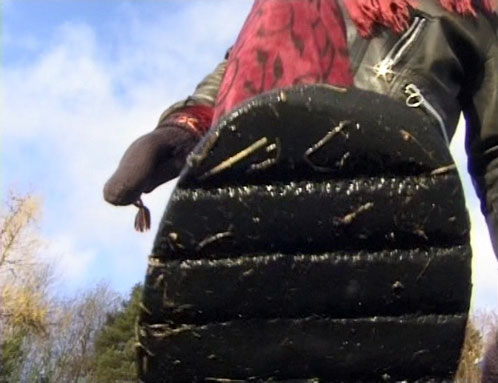 |
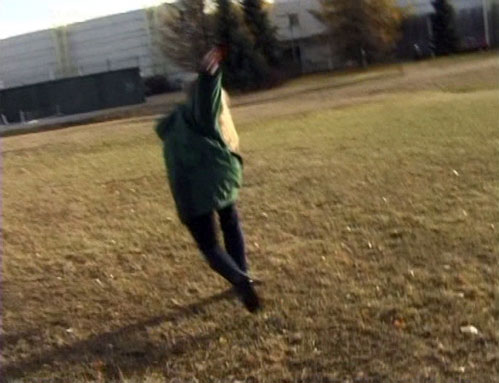 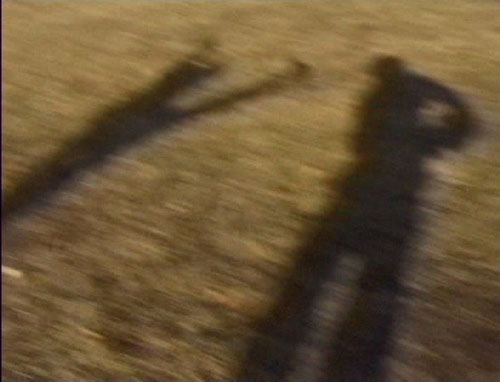  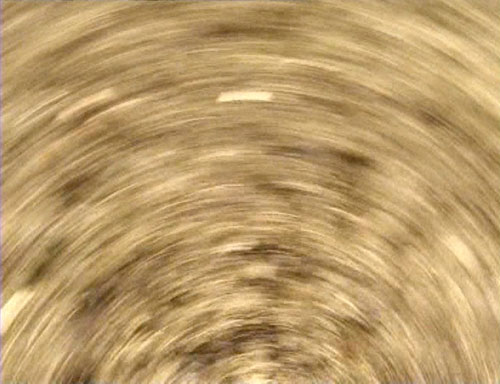 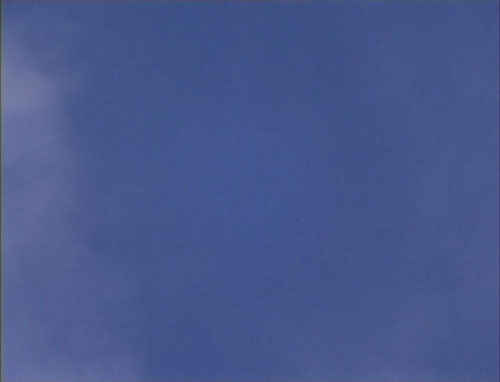 |
| <<< previous work |
RUMARYHMÄ (Pia Karaspuro, Jouko Kyhälä Teemu Mäki,
Outi Pulkkinen and Päivi Rissanen) is a collective that has made
performances, exhibitions and video works. In the video work
ITÄKESKUS DANCING TREE
there are four dancers: a tree, two women
and one camera. Jouko and Outi made the music for it afterwards. They
used the audio of the original video clips as their source material,
molding it and then playing and singing on top of it.
This is often
said to be the most boring of my video works – probably because 10 of
its 13 and a half minutes shows just a stump of a tree without any camera movement.
I myself very much enjoy the 10-minute shot of the stump. I see real
metaphorical importance in it. And it does have loads of little
movement for example in the form of foliage quivering in the wind. As a
relatively low resolution – in comparison to the abilities of human eye
– video image this view also has in my opinion an interesting tension
in it: on one hand it has a naturalistic look (just a stump of a tree
shot in neutral daylight) and yet simultaneously it can seem almost
abstract image, a two-dimensional slab of brown and grey dots and lines
slightly shaking.
After the
10-minute-long "informalistic painting" comes the short burst of two
women dancing, rapid-cut and shot with flailing camera-gestures.
Even though on the video you can mainly see trees, grass and a couple of dancing bodies, from some shots and from the margins of all the shots you can tell that it's shot in urban and industrial environment. Actually just a stone-throw away from Finland's first shopping mall Itäkeskus. We wanted to turn our backs to the compulsive treadmill of production and consumption that consumer society is and make room for bodies in non-productive yet vitalizing acts. And ask: what can we learn from the tree-stump? Or from looking at it? | next work >>> |
|
PAINTING & DRAWING PRINTMAKING PHOTOGRAPHY VIDEO INSTALLATION THEATER & PERFORMANCE TEXT CV links |